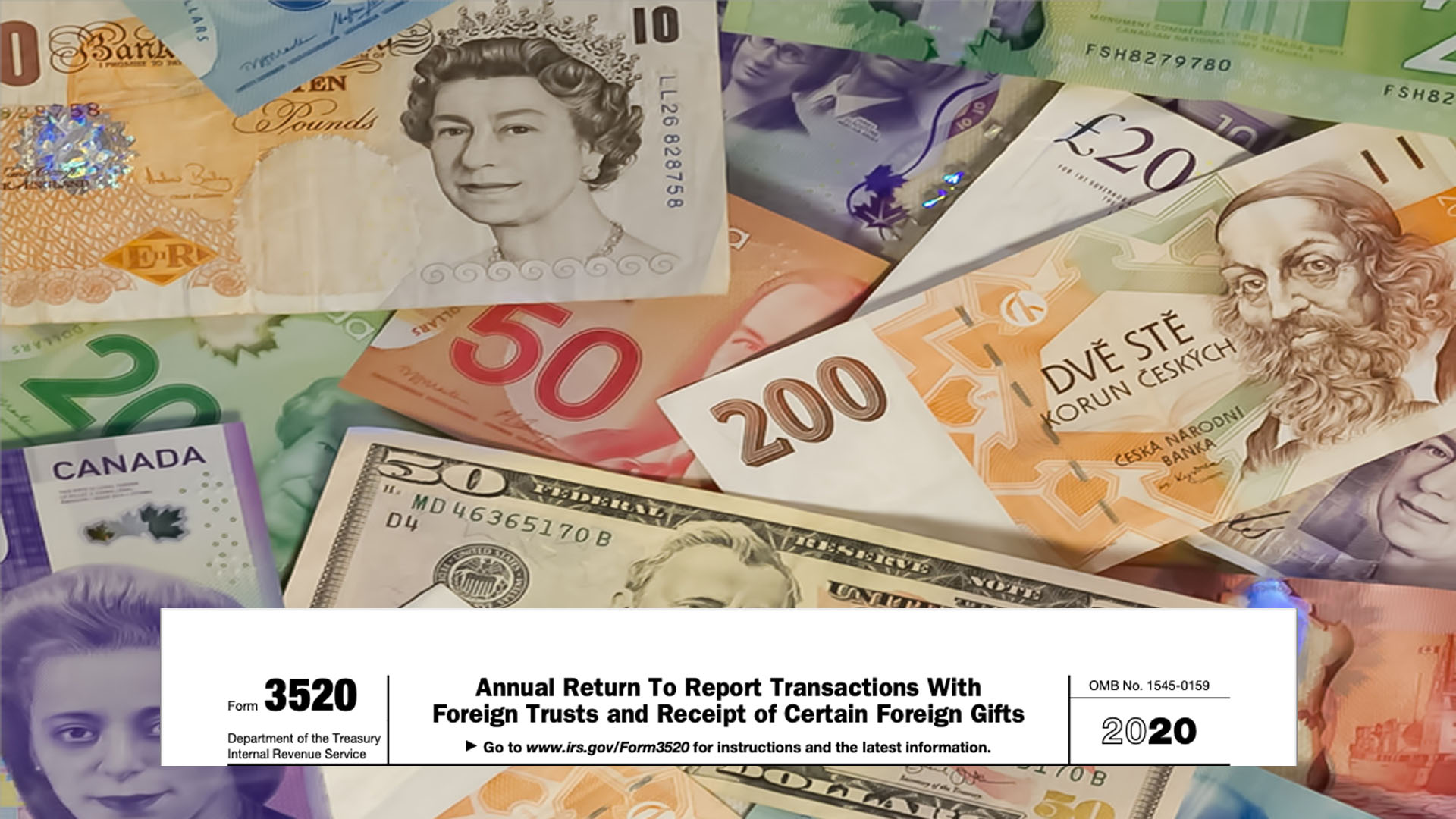Understanding the Kinds Of Foreign Presents: Exactly How to Efficiently Report Them
Recognizing foreign presents is vital for organizations going across complicated coverage demands (report a foreign gift). These gifts can vary substantially, falling under monetary and non-monetary classifications. Each type provides distinct challenges in valuation and conformity. Organizations needs to know the lawful and honest effects entailed. Reliable management and reporting necessitate clear standards and routine training. The concern stays: exactly how can companies guarantee they fulfill these responsibilities while maintaining openness and accountability?
Meaning and Summary of International Presents
International presents are items or benefits obtained from international entities, which can include companies, governments, or individuals. These presents might take different kinds, including concrete products, solutions, or various other kinds of assistance that hold value. The value of foreign gifts usually lies in their possible to influence relationships between people, nations, or companies. They can be a method of diplomacy, revealing a good reputation or cultivating participation. Nonetheless, the approval of such presents increases legal and ethical considerations, particularly regarding transparency and potential problems of passion. Receivers have to navigate complex policies that govern the reporting and acceptance of foreign gifts, ensuring conformity with both residential and worldwide legislations. Comprehending the definition and effects of international presents is essential for companies and people to maintain honesty and responsibility in their dealings with international entities. This foundational expertise sets the phase for a much deeper expedition of the different kinds of foreign presents and their reporting needs.
Kinds of Foreign Presents: Monetary vs. Non-Monetary
Presents from abroad can be classified right into 2 primary types: non-monetary and financial. Monetary gifts include direct monetary payments, such as cash or checks, which can greatly affect the recipient's financial standing. These gifts are frequently uncomplicated to value and report, as they entail clear financial amounts.
Non-monetary presents, on the various other hand, include concrete things such as garments, art work, or souvenirs, in addition to abstract offerings like services or experiences. While these gifts might not have a straight monetary impact, they can hold considerable sentimental or social worth. Valuing non-monetary presents can be much more intricate, as it often calls for evaluating the product's market worth or significance to the recipient. Recognizing these two categories is important for precise coverage, making sure compliance with laws concerning international presents and keeping openness in financial negotiations.
Honest and lawful Effects of Receiving Foreign Present
While the allure of getting presents from abroad may appear innocuous, the legal and ethical effects related to such purchases can be significant. Recipients should navigate complex policies that govern the acceptance of international presents, as failing to do so may lead to legal consequences, consisting of fines or sanctions. Morally, the approval of gifts from foreign entities can lead to perceptions of preference or problems of passion, specifically for people ready of power or public count on. Such perceptions can threaten the honesty of establishments and wear down public confidence. Additionally, the possibility for foreign influence raises issues relating to national safety and security and the stability of decision-making processes. Consequently, people need to very carefully take into consideration not just the legitimacy of accepting international gifts however also the more comprehensive ramifications on their credibilities and the institutions they stand for. Ultimately, thoughtful deliberation is vital to maintain both legal conformity and moral criteria.
Reporting Needs for International Presents

Understanding the coverage requirements connected with obtaining foreign gifts is crucial for individuals in different sectors, especially those in federal government and civil service. These demands are made to promote openness and prevent disputes of passion. Generally, recipients have to report any foreign gifts surpassing a defined financial limit, which differs by territory.
Documents is crucial, as receivers have to provide details such as the value, nature, and resource of the present, in addition to the day it was obtained. Many organizations require recipients to submit their reports within a marked duration, often you could try here within thirty day of invoice.

Failing to adhere to these reporting commitments can cause extreme effects, consisting of legal charges and damage to one's professional reputation. my website Therefore, understanding the details regulations applicable to one's placement and territory is necessary for making certain conformity and preserving ethical standards in public solution.

Finest Practices for Handling Foreign Presents in Organizations
To efficiently manage international presents within organizations, developing clear plans and procedures is crucial. Organizations should start by specifying what comprises a foreign gift and recognizing the pertinent reporting requirements to assure compliance with lawful obligations. Normal training sessions can improve team understanding of these plans, promoting a society of transparency and diligence.
Additionally, organizations need to implement a central tracking system to record all international gifts obtained, including details such as the resource, value, and function. report a foreign gift. This system needs to assist in normal reviews and audits to examine conformity with recognized plans

Regularly Asked Questions
Can Foreign Present Impact Organization Choices or Relationships?
International presents can significantly influence organization decisions and connections, frequently creating perceived obligations or biases. Such influences might impact negotiations, partnerships, and total business principles, potentially bring about disputes of interest or reputational threats.
What Are the Charges for Failing to Record Foreign Gifts?
Falling short to report foreign presents can cause considerable fines, including fines, corrective action, or lawful consequences. Disobedience undermines openness and can harm credibilities, stressing the significance of sticking to reporting policies.
Exist Specific Countries With Stricter Present Regulations?
Specific nations, like China and Saudi Arabia, enforce more stringent laws on gifts, mirroring cultural norms and governmental oversight. These laws may influence international communications and necessitate careful factor to consider by people taking part in cross-border connections.
Exactly How Can Organizations Educate Worker About Foreign Gift Plans?
Organizations can enlighten employees regarding international present policies via regular training sessions, detailed manuals, and clear interaction networks. Involving workshops and real-life scenarios assist reinforce understanding, guaranteeing conformity and recognition of More Info potential honest issues.
What Paperwork Is Essential for International Present Coverage?
Documents for international present reporting normally consists of an in-depth description of the gift, its worth, the donor's info, function of the present, and any kind of suitable plans or guidelines regulating the approval and reporting of such gifts.
Foreign gifts are advantages or products gotten from foreign entities, which can include people, governments, or organizations. Receivers should navigate complex regulations that govern the coverage and acceptance of foreign presents, making certain conformity with both worldwide and domestic regulations. Comprehending the definition and implications of international gifts is vital for people and companies to maintain honesty and responsibility in their transactions with international entities. Receivers must navigate intricate guidelines that govern the approval of foreign presents, as failure to do so might result in legal effects, including penalties or permissions. Failing to report foreign presents can result in considerable penalties, including penalties, disciplinary activity, or lawful consequences.